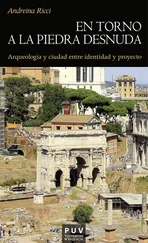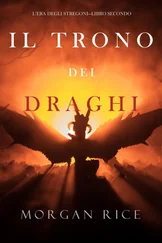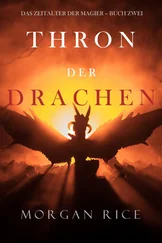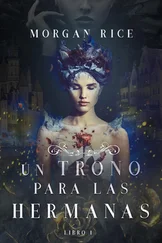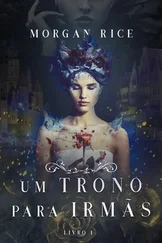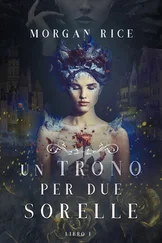When at last Pearce rose from his bed and arrived in my Withdrawing Room dressed in his greasy black clothes, he found me singing to my nightingale. Shading his eyes from the brilliance of the furnishings, he approached the cage and stood blinking at it like a lizard. I ceased my singing and the bird at once let out a melodious trill.
"I recognise that," said Pearce.
"What is it?" I asked excitedly. "Something by Purcell?"
"No," said Pearce, and turned upon me a pitying, reptilian look. "That is the warble of a common blackbird."
"Don't be foolish, Pearce," I said at once, meanwhile recognising that my heart, all unfeeling as I know it to be, had started to beat erratically. "The bird was a gift to me. That creature has traveled the oceans."
"When? Who brought it?"
"I have no idea. An ornithologist, no doubt. It has been round Cape Horn. So let us have no more talk of blackbirds!"
Pearce shrugged and turned away from the cage, as if it was of no further interest to him whatsoever. "You've been duped, Merivel," was all he said.
"Very well," I said. "We will go out into the garden and find a blackbird and listen to its feeble song, and you will see that you're wrong."
"As you wish," said Pearce, "but I would remind you that it is winter and birds do not sing a great deal at this time of year."
"Further proof, then, that this is not an English bird. You just heard its lovely trill."
"No doubt it mistook its surroundings for a flower bed."
I smiled at Pearce. The insult he'd intended to my gaudy room in fact pleased me a great deal, and I mention to you, in passing, that Pearce's criticisms of me do not inevitably have the humbling effect upon me that they so strenuously desire.
Pearce and I then put on our cloaks (his so exceedingly threadbare that an irritating shiver of pity ran through me) and went out into the December morning, filigree'd with frost, sparkling and silent in the dry, icy air.
We stood still and listened. Some way off in the park, rooks were circling and cawing above the beech trees, but there was scarcely another sound at all. "Let's walk down the drive a little," I suggested, and we set off at the slow pace always adopted by Pearce, who, if God himself were suddenly to appear before him with open arms, would, I believe, forbear to run, but approach his Maker with his habitual measured and ungainly step.
After we had gone a very little way, a sound I had not expected at all began to clatter and jingle in the frosty quiet. It was the sound of a coach and four. I caught my breath. Without any doubt, it would be Violet Bathurst riding over for a little mulled claret and an hour in my bed, and here was I listening out for blackbirds with the one friend whose mind would be tormented by her arrival. I knew, if I wished to keep Pearce at Bidnold, I would have to send Violet away, however beguiling the thought of her company might be.
We stepped to one side as the coach came on, but as it rounded the curve in the drive, I saw immediately that the beautiful greys which pulled it were not Violet's horses. I was expecting no other guests and couldn't imagine who could be coming to my house at such a gallop.
I put out an arm and the coachman (recognising me by my fine clothes as the master of Bidnold) attempted to slow the horses. But their canter had been so brisk that they and the coach had gone past me before they could be pulled up, and all I had was a fleeting glimpse of a woman's face at the carriage window, shrouded in what appeared to be a black veil.
The coach had now arrived in front of the main doorway. With Pearce trailing me, like the ghost of the exiled John Loseley, I started to run towards the house, unfortunately slipping in my haste on an icy patch of the driveway, falling down in a most humiliating fashion, tearing my peach-coloured stockings and grazing my right hand.
I got up and stumbled on. "Ho there!" I called. "Hello!" But when I arrived, puffing and flushed, at my doorway, I saw that the occupant of the coach had already gone inside the house and that some large boxes and trunks were now being carried in by my footmen.
Noticing with great vexation that my hand was bleeding, I walked into my hallway. After the bright, cold sunlight, it appeared very dark, and indeed I could at first see no one at all. Then I looked up. Standing on the oak stairs was the woman in the black veil. Her stance was strangely familiar to me and, even as she reached up and flung back the veil, I knew whose face I was about to see. It was the face of my wife.
We stood staring at each other. Her stare – notwithstanding my crimson cheeks and my wig fallen over my eyebrows – was far more terrible than mine. She seemed to have aged almost out of time. Her small face, dimpled and pretty in my memory, looked grey and gaunt and her eyes were swollen and red, as if she had been crying day and night since the beginning of winter. I moved forward a pace. I wanted, in my pity for her, to say her name, but realised, even as I opened my mouth, that I couldn't remember what it was.
During my fanciful and hectic redecorations at Bidnold, I had allowed myself to ignore the possibility that Celia Clemence would one day take up habitation under its roof.
Thus, although the house contained eleven bedchambers, none, in my mind, had been furnished for the woman Violet Bathurst jealously referred to as "Lady Merivel, Your Bride", but whose continuing existence was invariably absent from my mind. "Listen, Violet," I was in the habit of saying on the occasion of my Lady B's envious outbursts. "I am no more conscious of Celia as my lawful wife than Bathurst is of you as his. Rest assured that I never think of her."
Usually, Violet's jealousy would be assuaged by this statement, but one evening, even as I knelt over her and gently eased my tumescent member along the soft furrow between her breasts, she suddenly reached up and pushed me sideways, so that I would have fallen onto the floor had my right leg not been tangled in the sheet. "Your analogy with Bathurst," she said crossly, "is misleading and, if deliberately so, then you are a cruel and cynical man. For as you well know, Merivel, Bathurst has moments of remembering and at such times becomes importunate. On Wednesday night, for instance, lucidity returned to him in the middle of supper and he began crawling towards me on his hands and knees under the Dining-Room table, the while unbuttoning himself. If I had not quickly reminded him that his brace of woodcock – his favourite game – were getting cold on his plate, I simply do not know what might have happened. And so it may be with you, Merivel. That which you swear you have forgotten, you will one day come grovelling towards."
"Violet," I said, recovering my kneeling position (only disconcerted very mildly by the similarity of my stance to Bathurst 's under the table), "grovelling is a thing I have done but once in my life, when I inadvertently fell over at the King's feet. The notion that I will ever, as long as I am of sound mind, grovel to Celia is a pure fiction, not to be entertained for one second more!"
I put my mouth upon Violet's at this moment, thus preventing further speech, and the evening proceeded very pleasantly, Violet's sudden attack of jealousy having roused her to a wild and shameless abandon.
But even as I saw her into her coach, I found myself remembering Celia and wondering where, in the unlikely event of her unexpected arrival at Bidnold, I would lodge her. Had I not, on my strange wedding night, witnessed the immodest thrusting of her loins towards the King's mouth and heard through the closet door a wailing of pleasure worthy of an African wildcat, I would have believed Celia to be an entirely chaste and modest person, a person of sober taste and small appetite, finding comfort and contentment in a bedchamber hung, say, with pale apricot moire and ornamented by sombre prints of rivers and cathedrals. As it was, by the time I had ceased waving to Violet's gloved hand disappearing into the night, I had already decided that what I called the Marigold Room would be the one I would offer to Celia. Late as the hour was, I had my servants go up and light candles in the Marigold Room, so that I could take a look at it. I would have given the thing no thought at all but for Violet. For this one brief night, she had awoken in me a minute flicker of excitement at the idea of my wife's arrival. The next morning, however, Celia was once more consigned to that part of my brain I imagine to be like a coiled fistula, filled not with putrescent matter, but with utter darkness and into which so much of what I have once known is carefully crammed.
Читать дальше


